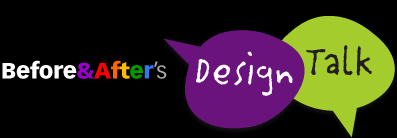For all of the time we put into coming up with just the right “target-market” sort of name — you know, the one that perfectly embodies our business or product or audience and is compact, easy to say, and easy to remember (same kind of “target-market” effort that we put into our logos) — I get the feeling that we’re over-thinking things.
I was reminded of this recently as I read a brief history of the Mercedes-Benz logo and learned that Mercedes was the name of the daughter of Emil Jellinek, an early company backer.
I already knew that Adobe was named not for its world-changing technology but for the creek that runs behind co-founder John Warnock’s house in Silicon Valley. And that the Ford Taurus — the car that saved Ford from bankruptcy in the 1980s — was named for — say what? — the horoscope sign of two Ford executives’ wives.
Samsung means “three stars” in Korean. Kodak, which means nothing, was named by founder George Eastman in part because he liked the letter K. And Pepsi was named for the digestive enzyme pepsin. That ought to haul in customers!
The takeaway here? Hold your name lightly. Dare to make it something you like. If your business/product/service is great, your audience will make the association you need. If it’s not, the “correct” name (or logo) won’t help you, at least not for long.
For more from Wikipedia on famous-name etymologies, click here.





Agreed. I thought about the name of my company for months until I realized that it was holding me back. I then went with my favorite choice, even though it was not perfect by everyone’s standards. What’s most important is how you inhabit the name, what meaning and reputation you give to it, through your work. Paul Rand said pretty much about logos:
“A logo is less important than the product it signifies; what it means is more important than what it looks like.”
Product naming is accepted and taught in Marketing 101 as a principle means of positioning a product. The smaller the niche, the tighter the name needs to be to address the buyer’s motive to purchase. Consumer markets may get away with obscure, poetic or nonsensical names — but not in business-to-business, industrial, military, or scientific marketing.
Big consumer companies have money to make crazy names mean something. Small business entrepreneurs don’t. They get one chance at a win. Proper naming strategy stacks the cards in their favor for faster customer understanding.
I have seen renaming with good product names save technology companies. Don’t take naming lightly if you’re designing for these sectors. Seriously. No one will know what your product does otherwise. Naming is also a service you can provide to your client that they will appreciate. Study up.
Thanks for listening.
-Steve Teare
Yes, this is what I was thinking as well. If you’ve got the budget, you can take a name many people might think is awful (remember the initial reaction to the iPad name?) and make it a household name that becomes linked to the product, which then speaks for itself. In the case of the iPad, it just needed to be something short and unique.
When it’s something that’s going to be setting the first impression for the entire product’s life, however (it doesn’t develop its own reputation as most people don’t encounter it regularly), it definitely helps for it to be an effective name. Although I do agree that sometimes we can over-think it, trying to find the “perfect” name. I don’t think it has to be perfect, but it does need to be good.
Just like the names parents choose for their children, the names of products/companies assume their own unique identity as they grow, develop and become familiar to the public.
BTW — in your comment about “famous-name etymologies” — I think you meant “etymologies” (word origins) and not a reference to “entomologies” (branch of zoology dealing with insects). Had to mention that, or it would continue to “bug” me . . . .
Good catch! Thank you so much! Of course, now no one will know what you’re talking about, because I’ve made the correction!
:–)
Pingback: Naming a Product or Company | Moe Rubenzahl
There’s a difference between naming a business and naming the products/services.
John seems to be referring to business names here.
Incidentally our website at http://www.psychotactics.com was not liked. What kind of name is Psychotactics, said some folks. And it won’t bode well for you.
Well, we know different 12 years later :-)
Good article John. I always smile when I fly international and see one airline’s exclusive duty-free fashion label. Seems it’s just me and my brand manager friend there who knows she named the line … after her cat!